Departmental news
UKRI Future Leaders Fellowship awarded to Dr Tom Gur
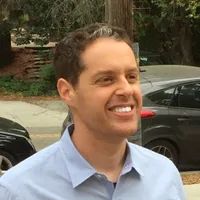 We are delighted to report that Dr Tom Gur has been awarded a Future Leaders Fellowship on Foundations of classical and quantum verifiable computing, funded by £892K from UK Research and Innovation. Professor Artur Czumaj, the head of the department's Theory and Foundations research theme, has commented:
We are delighted to report that Dr Tom Gur has been awarded a Future Leaders Fellowship on Foundations of classical and quantum verifiable computing, funded by £892K from UK Research and Innovation. Professor Artur Czumaj, the head of the department's Theory and Foundations research theme, has commented:
We congratulate Tom and look forward to hosting this exciting project that he will lead. This prestigious award confirms the high international standing of research at Warwick in theoretical computer science and its rich interfaces with other fields.
Tom’s Future Leaders Fellowship is concerned with algorithms and cryptographic protocols, both in the classical and quantum settings, and their applications to blockchain technology and delegation of computation to the cloud. This research programme is inherently interdisciplinary, involving fundamental research at the intersection of computer science, pure mathematics, and quantum physics.
The vision that this project aims to achieve is to develop new and exciting mathematical tools and to capitalise on their power to the end of pushing the frontiers of verifiable computing; providing new methodologies for meeting the challenges imposed by big data and the societal need for decentralised systems.
Best Paper Award at STOC 2019
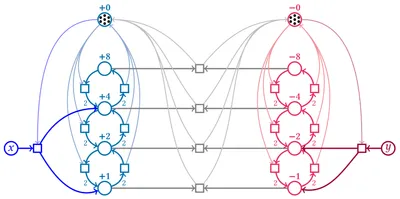 The contribution The Reachability Problem for Petri Nets is Not Elementary by Wojciech Czerwinski, Slawomir Lasota, Ranko Lazic, Jerome Leroux and Filip Mazowiecki has won a Best Paper Award at the 51st Annual ACM Symposium on the Theory of Computing, to be held on June 23-26, 2019 in Phoenix, AZ.
The contribution The Reachability Problem for Petri Nets is Not Elementary by Wojciech Czerwinski, Slawomir Lasota, Ranko Lazic, Jerome Leroux and Filip Mazowiecki has won a Best Paper Award at the 51st Annual ACM Symposium on the Theory of Computing, to be held on June 23-26, 2019 in Phoenix, AZ.
This work, which was supported by a Leverhulme Research Fellowship, shows that the central verification problem for Petri nets is much harder than has been known since the landmark result of Richard Lipton in 1976. Petri nets, also known as vector addition systems, are a long established model of concurrency with extensive applications in modelling and analysis of hardware, software and database systems, as well as chemical, biological and business processes.
Facebook Fellowship awarded to Jeremias Knoblauch
Jeremias Knoblauch, a second year PhD student supervised by Dr. Theo Damoulas (Warwick CS & Stats), has been selected as the first graduate student based in the UK and as one of only 21 graduate students worldwide to receive the Facebook Fellowship award.
Professor Feng Hao provided Royal Society International Collaboration Award

Royal Society has provided an International Collaboration Award of £225,000 to Professor Feng Hao in the Department of Computer Science, University of Warwick to build an international collaboration with Professor Bimal Kumar Roy of the Indian Statistical Institute on “strengthening e-voting in India”. The project will run from December 2018 to December 2021.
India is the largest democracy in the world by population. As of today, Electronic voting machines (EVMs) have replaced paper ballots in all national and general elections in the country. The aim of this international collaboration is to develop an electronic voting process that will be fully verifiable, hence providing stronger guarantees on the tallying integrity of an election. This builds on the UK team’s leading research on end-to-end verifiable e-voting without tallying authorities (also known as "self-enforcing e-voting") and the India team's strength on cryptography and statistics research. The success of this project will not only provide an invaluable case study, but also a potentially portable solution for other countries that face similar development problems in deploying e-voting securely (e.g., Brazil, Nigeria).
About Royal Society International Collaboration Award
The Global Challenges Research Fund (GCRF) is a £1.5 billion fund announced by the UK Government to support cutting-edge research that addresses the challenges faced by developing or Low and Middle Income countries (LMICs). As part of the GCRF, the Royal Society has launched an International Collaboration award to enable outstanding UK research leaders to develop international collaborations with the best leading researchers from around the world. The award is for three years and offers an exciting opportunity to foster and promote international collaboration between outstanding research groups in the UK and overseas, with a view to supporting work on global challenges and problems facing developing countries.
More details about this award can be found at: https://royalsociety.org/grants-schemes-awards/grants/international-collaborations/
£14.7m industry partnership to boost engine research
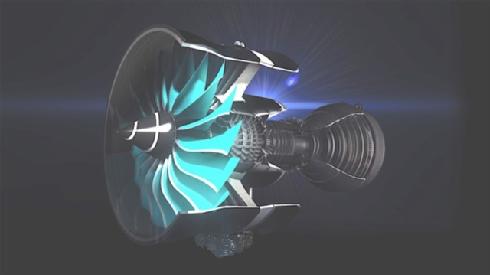
Image ©Rolls Royce Plc
Scientists at the University of Warwick’s Department of Computer Science are to benefit from an initiative that seeks to build links between industry and researchers, as part of a project with Rolls-Royce to create a detailed simulation of a gas-turbine engine in operation.
The research aims to lead to the virtual certification of gas turbine engines, with the researchers also seeking to develop the next generation of engineering simulation and modelling techniques during their project.
Their challenge combines fundamental engineering and computational science research and will tackle a level of detail never before attempted in such a simulation.
The project, to be carried out over five years, involving the universities of Warwick, Bristol, Cambridge and Oxford and led by Edinburgh and is one of seven across the UK to benefit from a £42 million programme that aims to build links between the UK’s research base and industry partners.
This is one of two projects the University of Warwick has been granted money for by the Engineering and Physical Sciences Research Council (EPSRC) Prosperity Partnership, as WMG at the University of Warwick was also granted £7m for development of Rapid Alloy Prototyping. See: https://warwick.ac.uk/newsandevents/pressreleases/the_virtual_factory/
Commenting Professor Stephen Jarvis, Deputy Pro Vice-Chancellor for Research at the University of Warwick and the Warwick Principal Investigator on the Rolls-Royce Prosperity Partnership, said:
“The University of Warwick has been working with Rolls-Royce for the past ten years, investigating ways in which high performance computing can boost the productivity of aircraft engine design and engineering.
“We are delighted to be working with such a strong team of university and industry partners to deliver next generation engineering simulation and modelling capabilities."
Professor Philip Nelson, EPSRC’s Executive Chair said:
“Our first round of Prosperity Partnerships are proving a great success. They are bringing universities and industry together and applying the creative energies of both to engineering and scientific challenges.
“We are confident that these projects will deliver real benefits to all their partners and help the UK research, discover and innovate.”
The research project will begin in October 2018 and will be led by Professor Jarvis and Dr Mudalige from the Department of Computer Science.
Dr. Gihan Mudalige Awarded a Royal Society Industry Fellowship
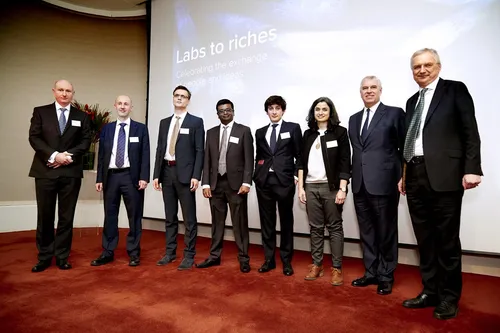
Dr. Gihan Mudalige has been awarded a 4-year, Royal Society Industry Fellowship to work with Rolls Royce plc., on their turbomachinery design simulation applications from September 2018.
Companies such as Rolls-Royce, crucially depend on High Performance Computing (HPC) based numerical simulation applications for the design of turbomachinery. These complex multi-physics and engineering applications, predominantly based on computational fluid dynamics (CFD), even in their simplest form, provide insights into aspects of aircraft engines which could not otherwise be achieved in the absence of physical testing. Developing such simulation applications is difficult and expensive, taking years to write, test and verify. They can easily contain millions of lines of code. Consequently, such programs have lifetimes of decades compared to the supercomputers that run them, which advances every 2-4 years. In the next five years, HPC systems are expected to reach thousand times the capabilities of current systems, attaining exascale (1018) performance where a single system can perform million-trillion computations every second. The range of processor architectures, networks, memory, their configurations and scale make it difficult to know what type of systems will dominate exascale machines and how best to programme them to gain optimal performance. Poor performance means less simulation for your money or worse, a completely inoperable suite of codes. Such an outcome will mean a significant loss of investment. The underlying objective of this fellowship project is to re-design Rolls-Royce’s simulation codes to meet these challenges. This work will utilize the OP2, high-level embedded Domain Specific Language developed by Dr. Mudalige and his research collaborators at University of Oxford, PPCU Hungary and Imperial College London, aiming to re-engineer Rolls-Royce’s CFD applications suite and deploy it for production simulations.
Photo (© The Royal Society): The Royal Society Industry Fellows of 2018 (Round 1): from left to right Duncan Maclachlan, Steve Morgan, Del Atkinson, Gihan Mudalige, Anas Al Rawi, and Aurora Cruz-Cabeza, with HRH Prince Andrew, The Duke of York and Prof. Andrew Hopper, Labs to Riches presentation event, 20 March 2018, at the Royal Society head office in London.
Dr Laurent Doyen is a new Rutherford Visiting Fellow
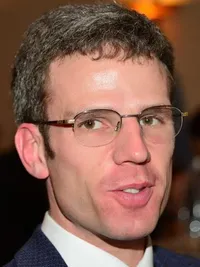 The Department will be welcoming Dr Laurent Doyen of CNRS and ENS Paris-Saclay as a Rutherford Visiting Fellow in 2018/19. This prestigious funding, whose aim is to attract top global talent into the UK, will allow Dr Doyen to collaborate closely with Dr Laure Daviaud, Dr Marcin Jurdzinski and Dr Ranko Lazic of DIMAP, as well as Dr Nathanael Fijalkow of the Alan Turing Institute, on cutting-edge research on fast algorithms for synthesis of safe, smart and adaptive controllers.
The Department will be welcoming Dr Laurent Doyen of CNRS and ENS Paris-Saclay as a Rutherford Visiting Fellow in 2018/19. This prestigious funding, whose aim is to attract top global talent into the UK, will allow Dr Doyen to collaborate closely with Dr Laure Daviaud, Dr Marcin Jurdzinski and Dr Ranko Lazic of DIMAP, as well as Dr Nathanael Fijalkow of the Alan Turing Institute, on cutting-edge research on fast algorithms for synthesis of safe, smart and adaptive controllers.
Professor Graham Cormode, the University of Warwick and Alan Turing Institute Liaison Director, commented:
Dr Doyen's Rutherford Visiting Fellowship will provide a major boost to building world-leading and long-lasting collaborative links among the Alan Turing Institute, the DIMAP multi-disciplinary research centre at Warwick, and LSV at ENS Paris-Saclay. The latter is an established European centre of excellence in logical aspects of computer and data sciences.
BBSRC funding success for Till Bretschneider
Prof Till Bretschneider has been successful with a £0.5M BBSRC grant application ‘Reconstructing cell surface dynamics from lightsheet microscopy data’ and will work with a team at MRC LMB Cambridge (Dr Rob Kay) and the Warwick Medical School (Prof Andrew McAinsh and Dr Karuna Sampath) on this research from October 2017. They will develop new image-based computational modelling tools to investigate the biochemical regulation and physical forces that shape the cell membrane during cell motility and uptake of fluid. Both are important processes in embryonic development, tumour metastasis, and the immune response. The work will benefit from state of the art microscopy in Warwick’s Advanced Bioimaging Research Technology Platform that allows to acquire time series of 3D scans of single cells at high spatial and temporal resolution.
Ranko Lazic appointed Leverhulme Research Fellow
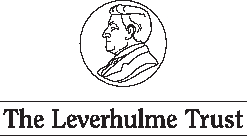 Dr Ranko Lazic has been awarded a Leverhulme Research Fellowship for the 2017/18 academic year, to work on the Petri nets reachability conjecture.
Dr Ranko Lazic has been awarded a Leverhulme Research Fellowship for the 2017/18 academic year, to work on the Petri nets reachability conjecture.
Petri nets, also known as vector addition systems, are one of the most prominent models of concurrency, and their study is a vibrant research area. They have been used to discover bugs and eliminate vulnerabilities in network protocols, concurrent software, business processes, hardware circuits, and control systems.
Professor Artur Czumaj, head of the Foundations of Computer Science research group, has commented:
This prestigious fellowship will further strengthen the internationally leading research in theoretical computer science at Warwick, which recently has been also greatly boosted by the new permanent appointments of Dr Sayan Bhattacharya and Dr Dmitry Chistikov.
Warwick to lead new research on cancer image analytics
Professor Nasir Rajpoot from the Computer Science department will lead a new research project funded by the Medical Research Council (MRC) on novel image analytics methods for computerised profiling of the tumour microenvironment. The project award in the amount of £604K is administered by the MRC's Methodology Research Programme (MRP) jointly with the National Institute of Health Research (NIHR).
Working together with a team of pathologists (Prof David Snead, Prof Ian Cree, and Dr Yee-Wah Tsang) at the local UHCW NHS Trust and the University of Nottingham medical school (Prof Muhammad Ilyas), Prof Rajpoot and a team of researchers from the Warwick Mathematics and Statistics departments (Prof David Epstein and Dr Richard Savage) will develop sophisticated tools for image analytics in order to reveal spatial trends and patterns associated with disease sub-groups (for example, patient groups whose cancer is likely to advance more aggressively) and deploy those tools for clinical validation at the local UHCW NHS trust. The researchers will also collaborate with industrial partners in Intel Health & Life Sciences (HLS) team based in the UK, GE Healthcare Finnamore, and the first-rate Center for Computational Imaging and Personalized Diagnostics (CCIPD) at the Case Western Reserve University (CWRU) in the USA.
